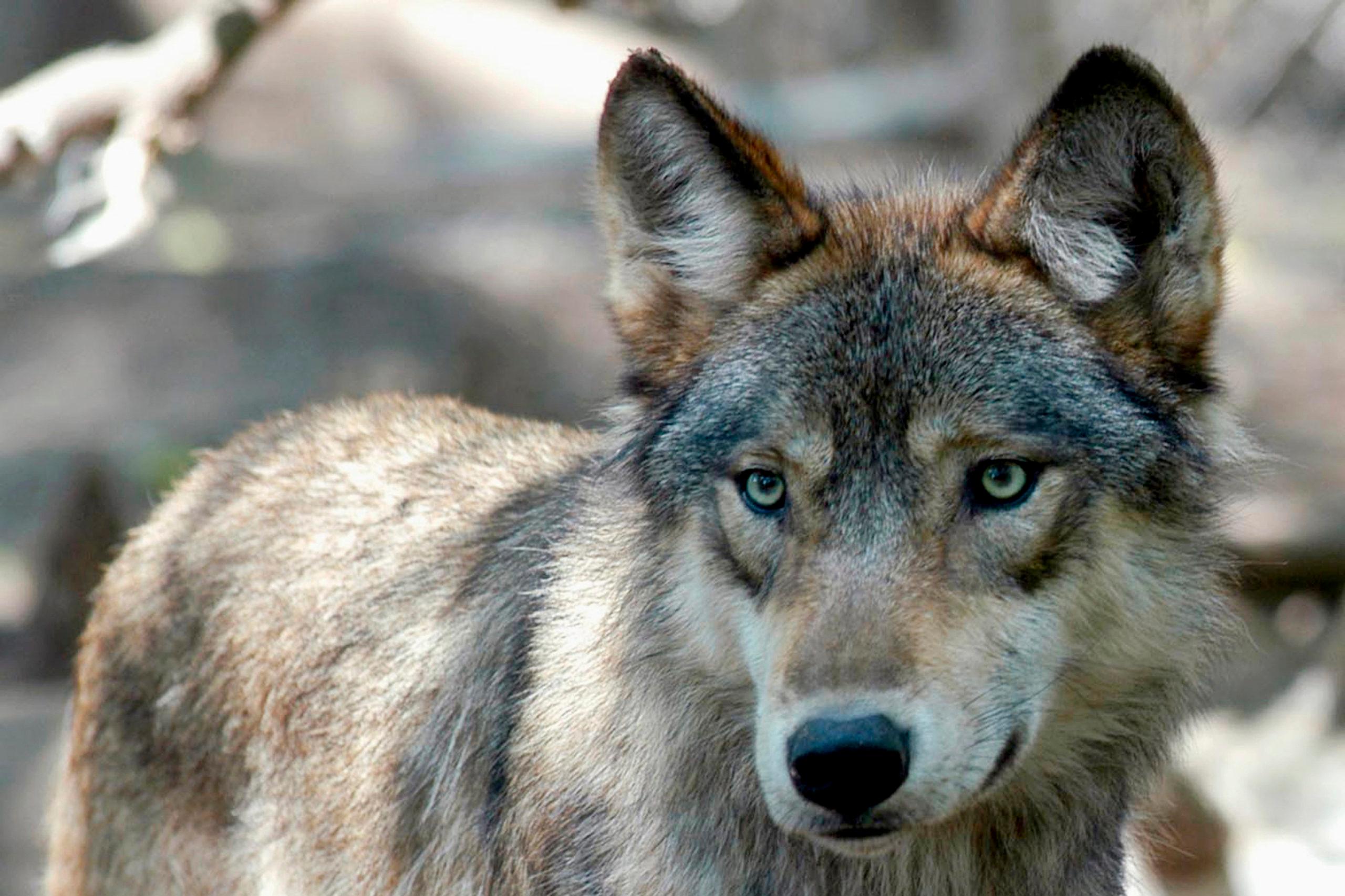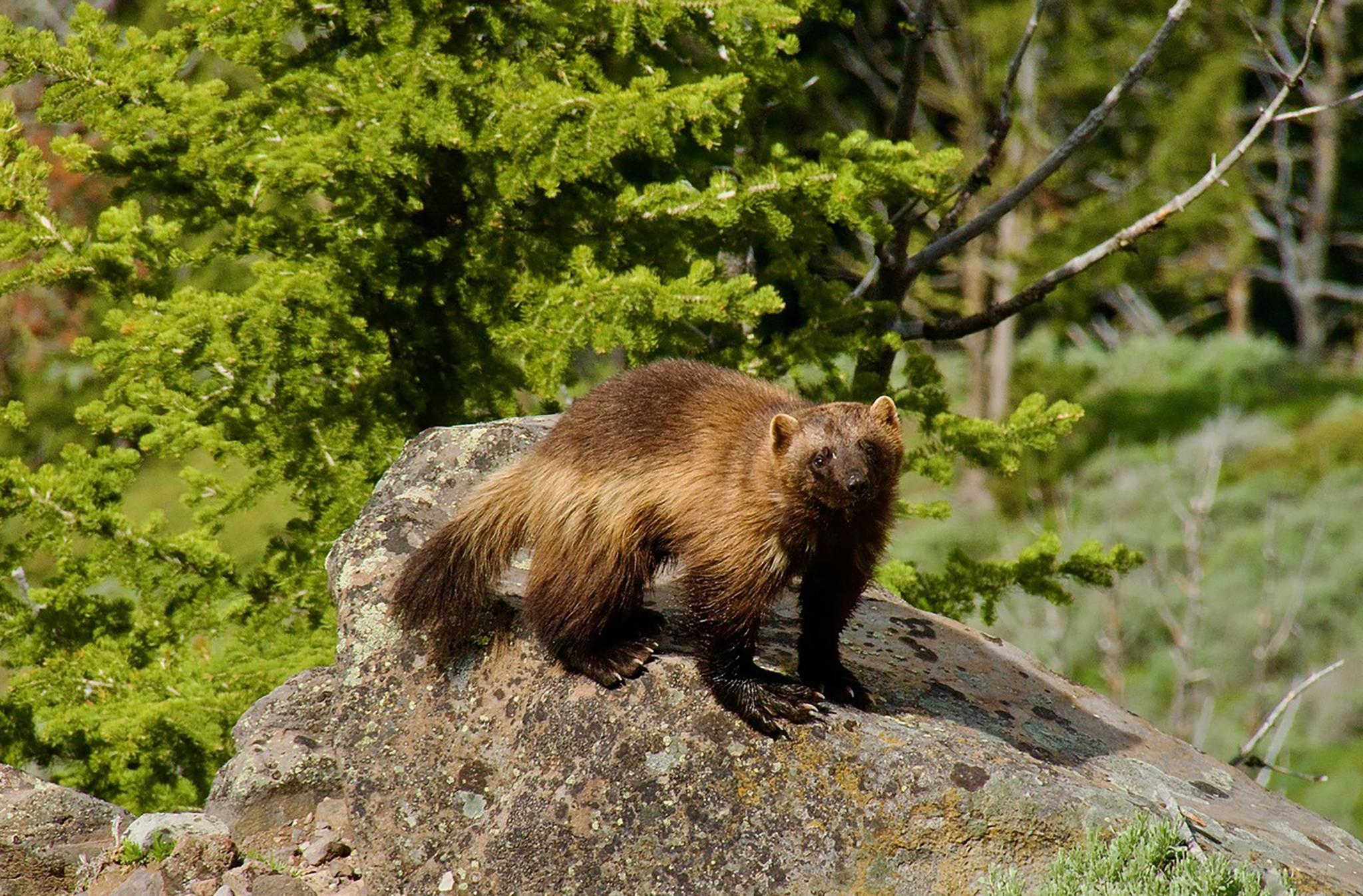
Colorado Parks and Wildlife is working to kill at least one additional wolf from the Copper Creek Pack living in Pitkin County.
The decision comes after wildlife officials determined wolves killed a calf near Aspen earlier in July.
In a written statement, Luke Perkins, a CPW spokesperson, said investigators found a “preponderance of evidence” suggesting wolves injured the animal before it succumbed to its wounds. A wildlife damage specialist confirmed the death as a wolf kill on July 18.
“Staff have been in the area since Sunday, July 20, attempting to locate the wolves,” Perkins said. “The terrain is challenging at best, and staff have not been able to get close to the wolves after multiple attempts. Staff will continue to monitor locations and attempt to intervene if possible.”
Perkins did not respond to follow-up questions seeking to clarify if CPW is working to remove one wolf or multiple wolves.
CPW has struggled to manage the Copper Creek Pack since it relocated the family group last winter. Since it was released, the wildlife agency has reported seven wolf attacks in Pitkin County and eight confirmed kills.
State officials killed a young male pack member on May 29, marking the first time the agency has lethally removed a wolf since it began reintroducing the predators. While CPW was hopeful the removal would steer the pack away from livestock, incidents have continued to plague ranchers living near the pack’s den site outside Snowmass.
The plan to remove another wolf marks the latest chapter in the saga of the infamous family group. The Copper Creek Pack was established by two wolves CPW captured in Oregon and released in late 2023. Gov. Jared Polis celebrated the pack’s first litter of pups the following spring as a milestone in the state’s controversial voter-mandated wolf reintroduction effort.
The pack, however, soon started feeding on livestock near its den site in Grand County. CPW responded by capturing the animals, and the breeding male died shortly after. A federal investigation later found the predator died due to a gunshot wound on its back leg.
Wildlife officials held the remainder of the pack in captivity until January 2025, when it re-released them into Pitkin County. At the time, the CPW also reintroduced another batch of 15 wolves in Pitkin and Eagle counties captured in British Columbia.
By moving the Copper Creek Pack, CPW broke from its own recommendation against relocating wolves with a habit of preying on livestock. The state’s wolf management plan warns the practice risks “translocating the problem along with the wolves.”
Before capturing the wolves, CPW Director Jeff Davis said the decision was an answer to "unique" circumstances facing the state’s nascent wolf restoration effort. At the time, the family group represented the only example of reintroduced wolves successfully breeding and helping the state reach its goal of building a self-sustaining population. Davis recently told lawmakers the decision to relocate the animals was his alone.
Tom Harrington, the manager of the Crystal River Ranch near Aspen and former president of the Colorado Cattlemen’s Association, said livestock groups applied for a permit to lethally remove Copper Creek Pack members. CPW denied the request since state wildlife officials were already working to kill some of the predators, Harrington said.
While he’s glad CPW is removing some of the wolves, he’s not confident it will redirect the pack to prey on wildlife like deer and elk.
“The pack has proven it will choose to prey on livestock in multiple locations,” Harrington said. “Until the entire pack is relocated to a sanctuary or lethally removed, depredations won’t end.”
Rob Edward, a wildlife advocate and director of the Rocky Mountain Wolf Project, said it’s unclear if the latest attack on livestock meets the thresholds CPW established to decide whether to kill wolves, but said the agency has been careful to follow those rules in the past.
“We don’t want to see any more wolves lost if we can avoid it. But it’s also within the agency's responsibility to determine whether that’s the next best step,” Edward said.







